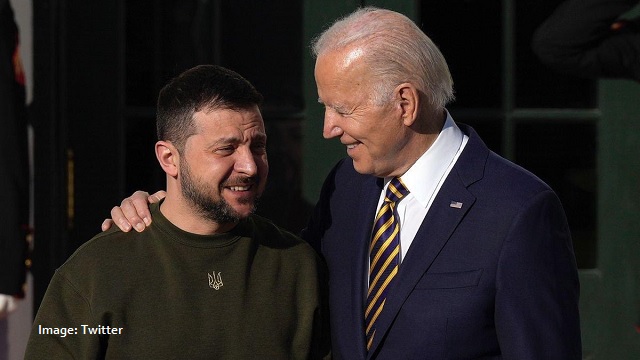The War In Ukraine – The Beginning Of The End?

Recently, there have been visible clashes between Ukrainian President Volodymyr Zelenskyy and top American leaders. Joint Chiefs of Staff Chairman Gen. Mark Milley, while generally supportive, has spoken about the slowness of the Ukrainian counterattack, and Zelenskyy, for his part, has complained that Ukraine’s Western allies have been “dragging their feet” with regard to their promise to train Ukrainian pilots on F-16 fighter jets.[1]
It was then leaked to the Washington Post – apparently by the U.S. State Department – that a month earlier, CIA Director Willian Burns had secretly visited Kyiv, met with Zelenskyy and with Ukraine’s military leaders, discussed military plans (is this his area of expertise?), and said that negotiations with Russia will begin by the end of the year as Ukraine regains of some of its territory (although whether this happens or not is not entirely in Ukraine’s control). Soon after, Zelenskyy rushed to declare that there will be no peace talks until Russia withdraws from all of Ukraine’s territory.[2]
Critically, the leak about Burns’ visit indicates that America’s intention for negotiations to be held at the end of the year is not conditional upon Ukrainian achievements in the battlefield.[3] It appears that for the U.S., whether Ukraine reconquers territories captured by Russia may be overshadowed by the fact that there are several crucial issues on the horizon that will divert America’s attention sooner or later. Hence, the U.S. may be aiming to free itself up for these issues. This is supported by reports that some former U.S. officials have even held secret talks with the Russians in order to lay the groundwork for ending the war.[4]
In addition, the U.S. may be trying to simultaneously resolve the conflict in a way that can be spun as a victory of American resolve in the upcoming 2024 presidential elections. Moreover, swiftly resolving the Ukraine issue at the end of the year, especially if a ceasefire is achieved, would help the West avoid an embarrassing failure of its economic sanctions campaign against Russia. In particular, the European Union may be forced to ease sanctions on Russia’s most important agricultural bank, Rosselkhozbank, in order to keep the Black Sea Grain Initiative flowing past its July 17th deadline.[5] Russian (and Ukrainian) grain exports are essential in feeding the world, and food scarcity in places like Africa will only increase pressure on Europe over time as waves of new migrants flood towards the Mediterranean. Easing the sanctions on Rosselkhozbank makes humanitarian and political sense, but it would undermine the point of the sanctions and may end up backfiring against the West if the conflict continues.[6]
There are two major issues that will inevitably demand America’s focus sooner or later:
The first is the issue of China and Taiwan, which is liable to erupt into a violent conflict at any time. Notably, as MEMRI’s Russia analyst Dr. Vladislav Inozemtsev noted in March of this year, China – which is Russia’s closest and most essential ally – is watching events in Ukraine closely in order to gauge the West’s behavior (Russia will also likely coordinate with China in ending the war in Ukraine).[7]
The second issue is the very real danger of war in the Middle East. A direct clash between Israel and the Islamic Republic of Iran becomes increasingly likely as Iran races towards the nuclear bomb. Such a war would involve Iran’s missile-armed militia proxies in Lebanon, Gaza, Syria, Iraq, and Yemen, and the ensuing regional “World War” involving ballistic missiles, drones, and Israeli airpower could very well drag the U.S. in as well. Unfortunately, this is not an unlikely scenario, and a hot war between Iran (which is Russia’s and China’s most important ally in the region) and Israel (which is America’s best armed ally) could be the next stage in the competition between the great powers. Such a war could indeed unfold before tensions erupt in the Taiwan Strait – and even before the Ukraine-Russia negotiations that the U.S. expects/hopes for by the end of the year.
AUTHOR
Yigal Carmon
Yigal Carmon is President of MEMRI
RELATED ARTICLE: The professionalism of the U.S. military is threatened
RELATED VIDEO: Bat Ye’or with a warning for Europe
EDITORS NOTE: This MEMRI column is republished with permission. ©All rights reserved.


Leave a Reply
Want to join the discussion?Feel free to contribute!